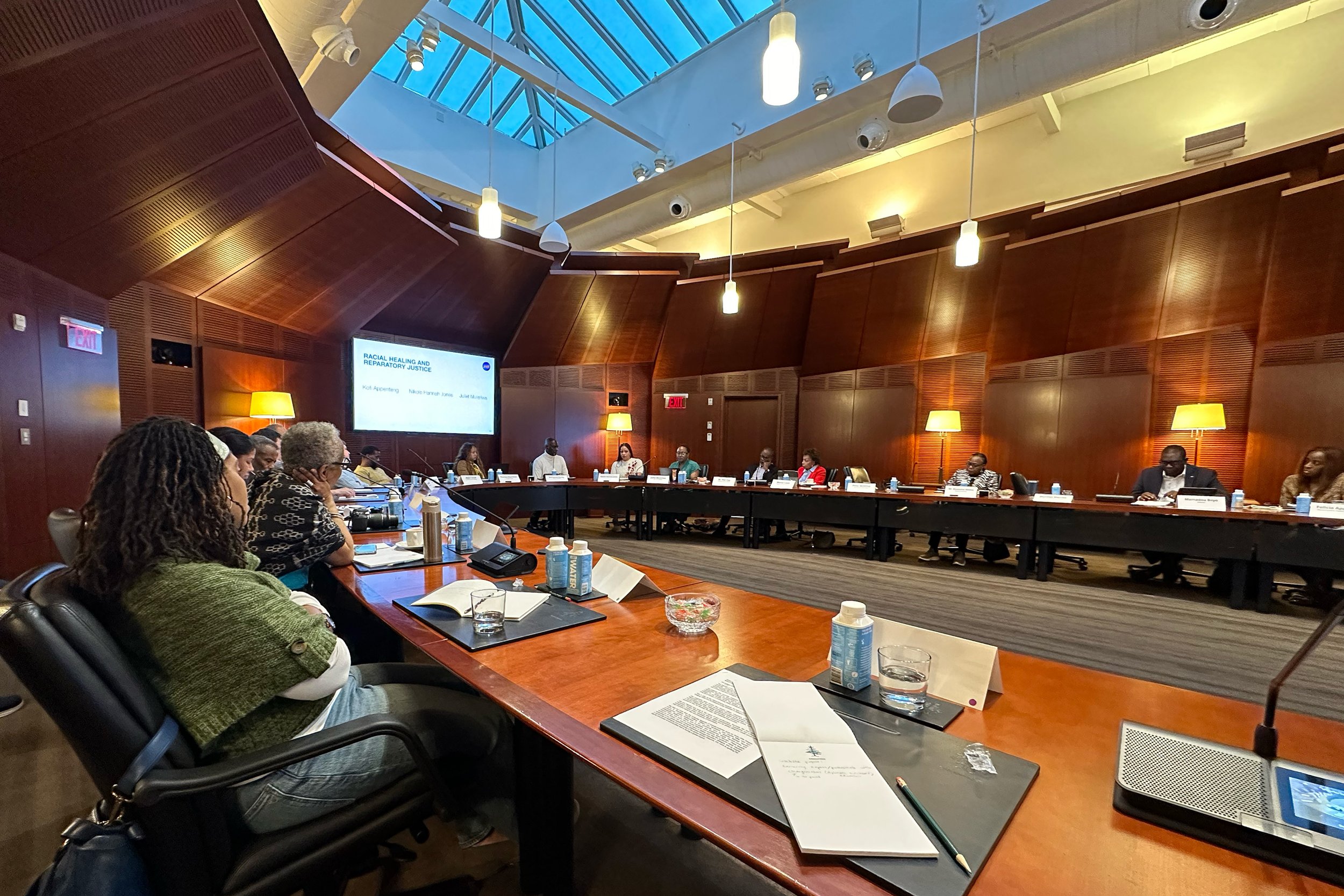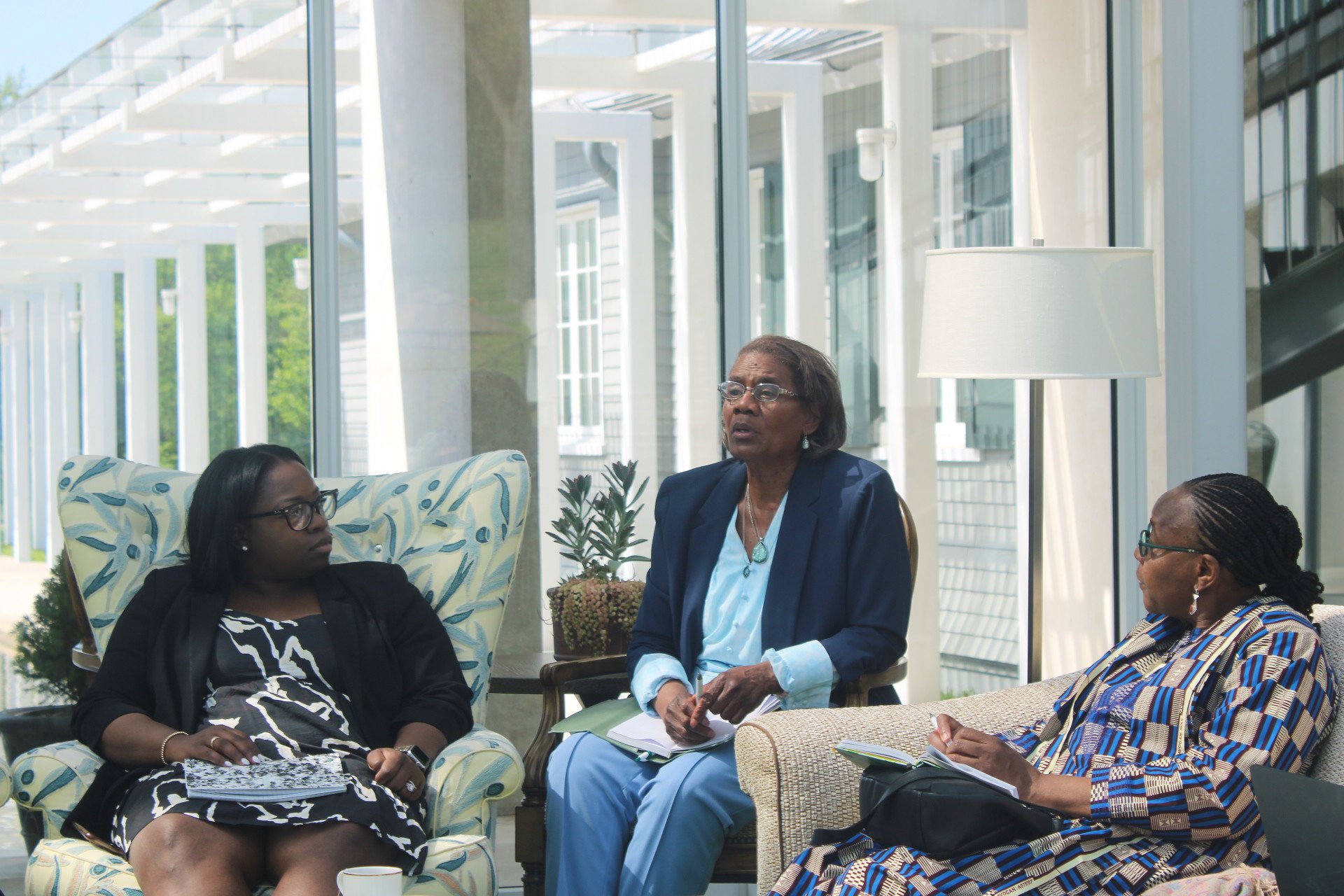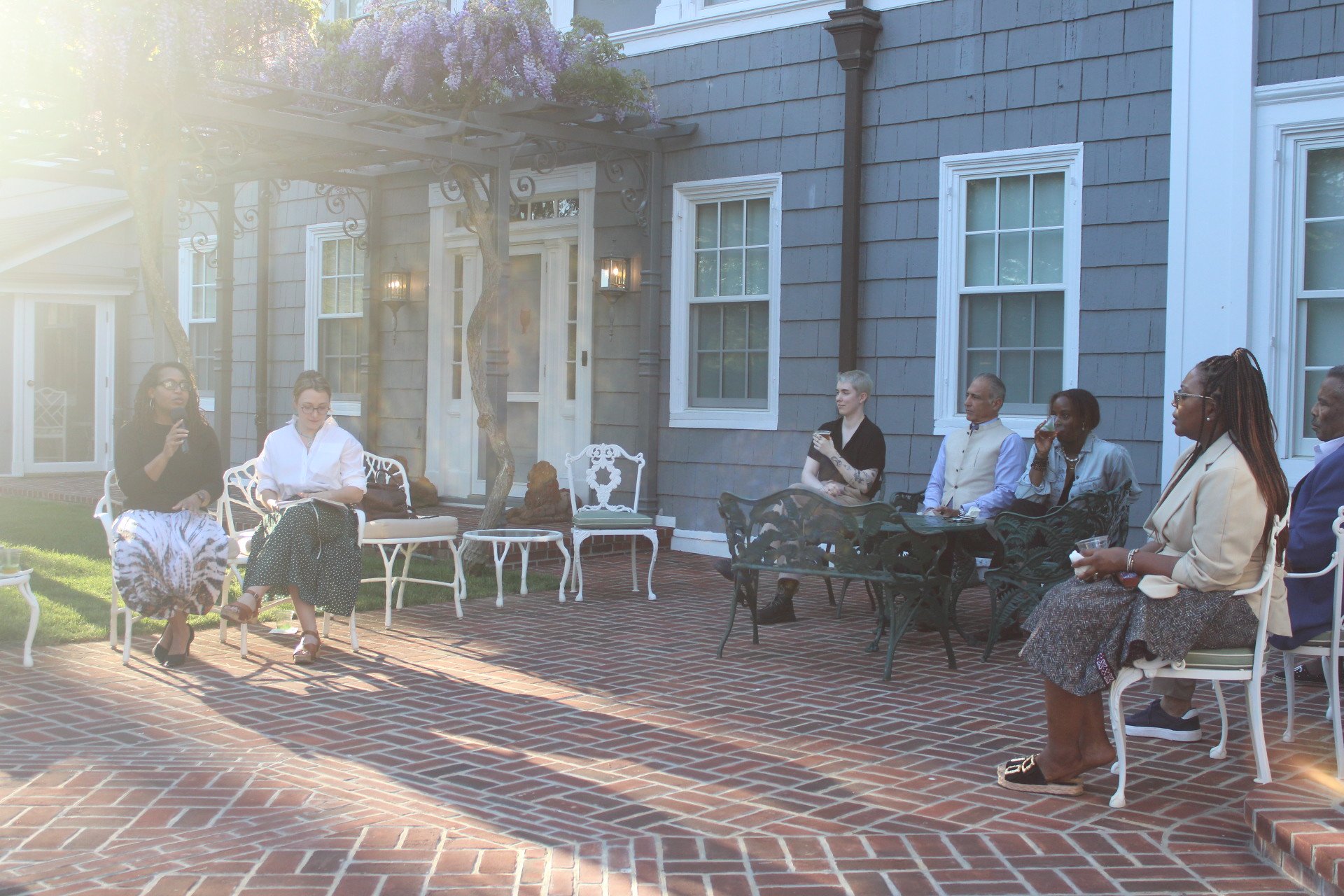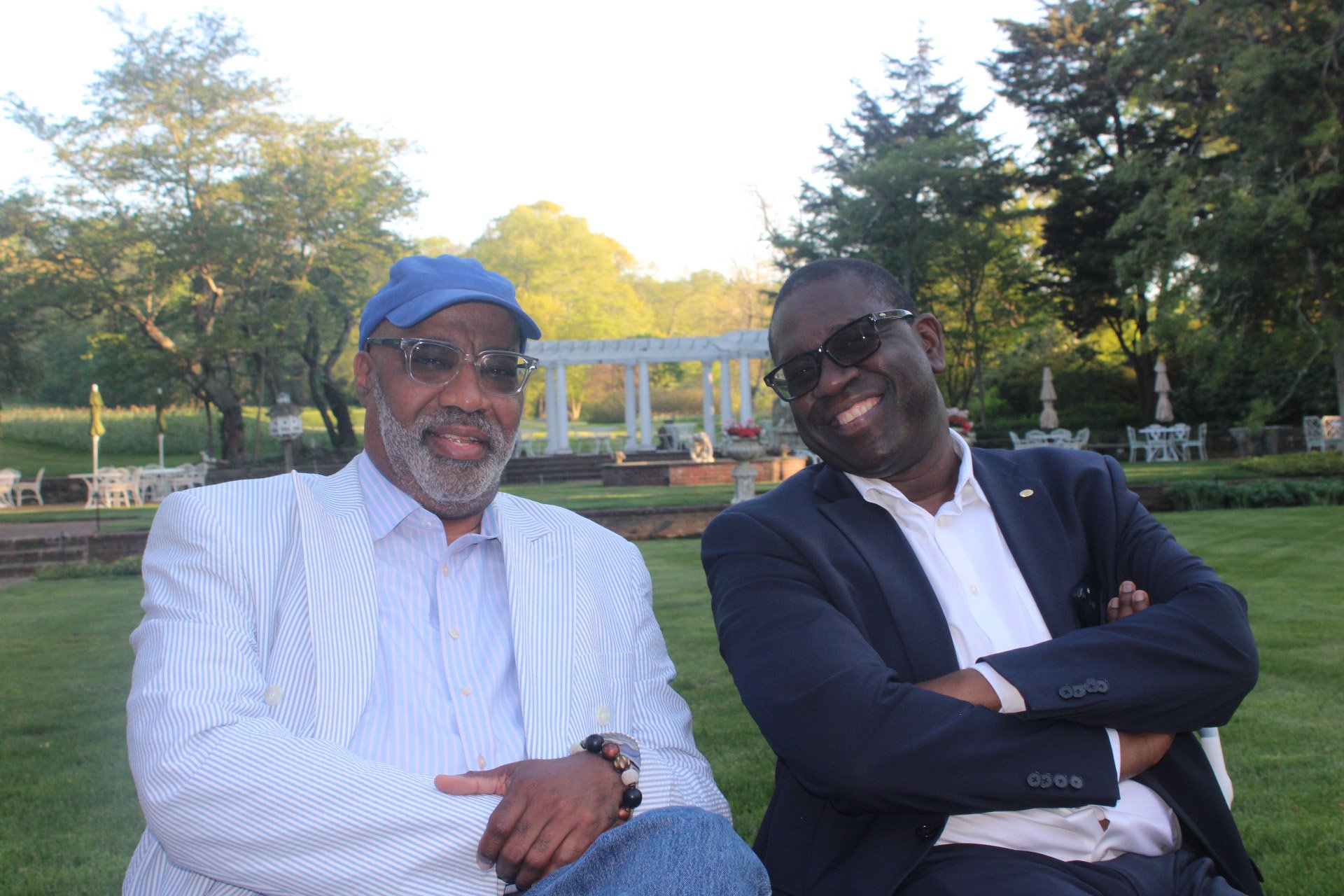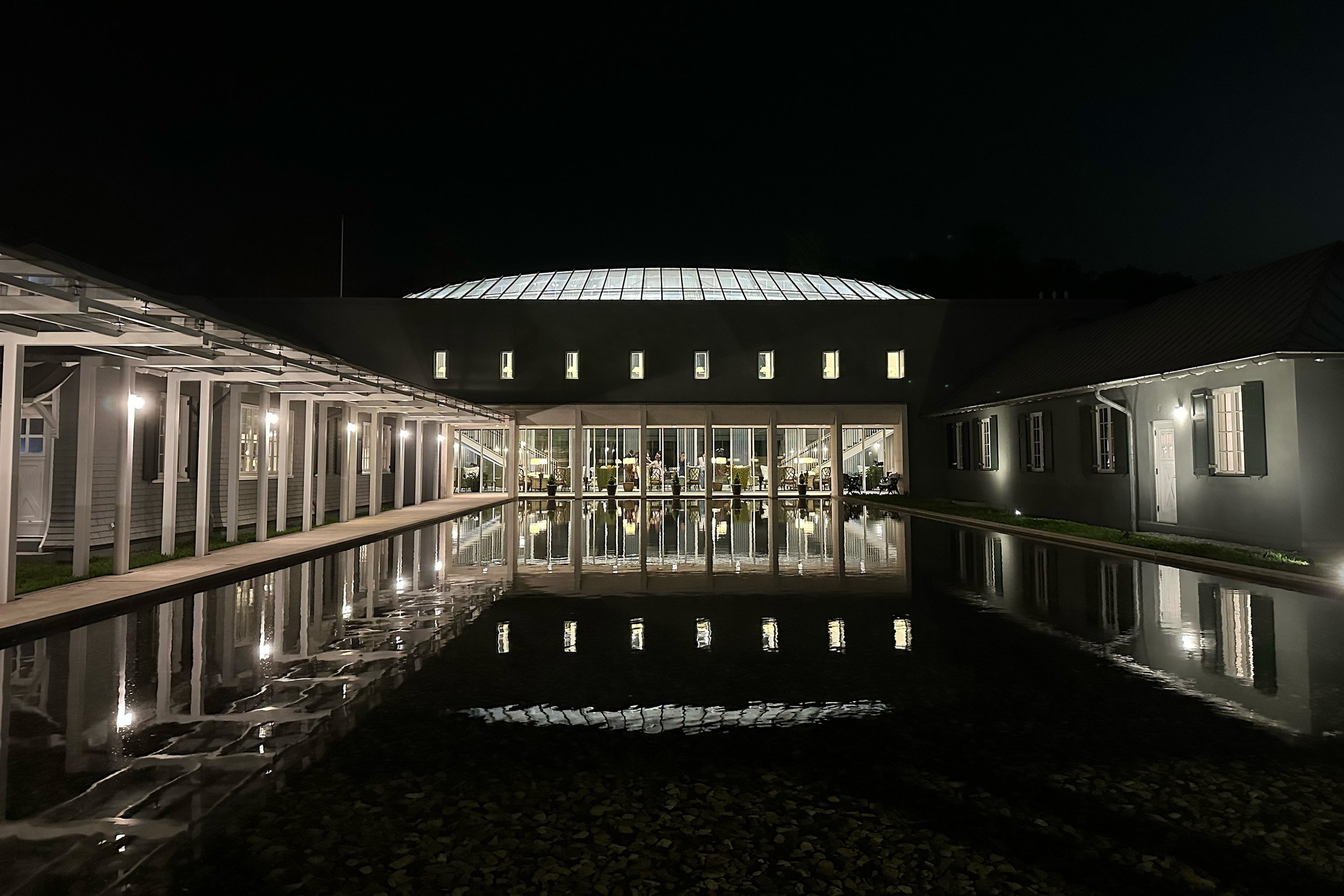Greetings from Accra, Ghana.
Last month, The Africa-America Institute held a community retreat on the grounds of the historic Greentree Foundation. We are grateful to the wonderful staff at the Greentree Foundation whose skill and kindness created an ideal environment for a meaningful gathering.
Kofi Appenteng
At the retreat, we reviewed our main assets: our storied institutional history; accomplished and devoted alumni; devoted partnerships; trusted convening power; and commitment to excellence that have sustained us for more than 70 years. Together, we delved into portions of our institutional archive, we explored how our founders mentored and supported many African students and how those students, in turn, influenced our founders. We also revisited how early on, one of our co-founders, William Leo Hansberry, helped to imbue our work with purpose.
What we learned at the retreat inspired us to rearticulate our mission as follows:
The Africa-America Institute bridges Africa and its diaspora to catalyze a more sustainable and equitable world.
We have organized our work into four mutually reinforcing impact pillars: Liberatory Education; Community Building; Global Repair and Healing; and Economic Sovereignty.
AAI Impact Pillars:
Liberatory Education
Since our founding in 1953, AAI has supported education and the development of scholarly and unbiased information about the creation of the modern world and Africa’s vital role throughout history.
AAI believes that one of the most pernicious consequences of Western civilization is the distortion of our global education system that teaches a false ideology of human hierarchy and perpetuates inaccurate beliefs about how the modern world was created, and how it negatively influences the historical narrative of Africa.
At AAI we believe that supporting scholarship devoid of bias is a key long-term solution to addressing the legacy of the past. To do this, AAI is reframing knowledge, re-orienting identities, and shifting mindset to promote accurate, unbiased, and accessible education.
We take our cues from the enduring legacies of scholar-activists such as Anna Julia Cooper, Carter G. Woodson, W.E.B DuBois, William Leo Hansberry, and Charles Mills, as well as contemporary intellectuals such as historian Michael Gomez, philosopher Olúfẹ́mi O. Táíwò; and AAI Historian, Mora McLean.
AAI’s history is deeply rooted in repairing these wrongs. For decades, we have supported more than 23,000 African scholars and leaders who came to the United States to advance the political, social and economic sovereignty of the African nations they represented.
Today, AAI’s educational mission has expanded to also offer scholastic programming across the United States and the African continent that continues to address these historical inaccuracies and advances new forms of liberatory education.
Community Building
AAI continues to foster a community of leaders and partners who are catalyzing a more equitable world locally and globally. AAI’s inclusive community movement includes Heads of State and ministerial officials who benefited from AAI’s scholarship programs over the past 70 years. The network has grown to include over 23,000+ alumni who are championing local and global racial justice by dismantling the status quo to ensure a brighter future and more equitable world for all.
These alumni include the late Dr. Wangari Maathai; H.E. Cyril Ramaphosa, President of the Republic of South Africa; H.E. Nangolo Mbumba, President of the Republic of Namibia; H.E. Alassane Ouattara, President of the Republic of Côte d’Ivoire; Phumzile Mlambo-Ngcuka, Former United Nations Under-Secretary-General and Executive Director of UN Women; Strive Masiyiwa, Founder & Executive Chairman, Econet Wireless and thousands more.
The Greentree Foundation, New York
Global Healing and Repair
The legacy of slavery persists in the form of economic disparities, institutional racism, and social inequality. The global healing and repair movement aims to address these historical wrongs by demanding acknowledgment, apologies, and tangible compensation. From granting land rights to the quilombola people (descendants of enslaved people) in Brazilian rainforests, repatriating artifacts such as the Benin bronzes from the United States and Germany to Nigeria, landmark municipal housing discrimination reparations programs in the United States, such as in Evanston, Illinois, and a growing use of loss and damage funds such as in the case of the 2022 Pakistan floods, examples of an expanding healing and repair movement are numerous and increasing rapidly. This is where AAI comes in — we are amping up our leadership and bringing together leaders across civil society, government, and human rights bodies in support of a unified dialogue on repair and healing for Africa and the worldwide diaspora.
Economic Sovereignty
We work in support of African nations to identify and realize greater opportunities for economic sovereignty. All nations and communities theoretically have the legal right to exercise control over their own currency, trade policy and domestic agenda with the economic freedom to achieve their public policy goals. Yet for many low-income communities and countries, realizing this right is rare. AAI works collaboratively to identify concrete opportunities for independent action at the community, country, and regional levels, to catalyze economic repair and greater economic sovereignty.
We look forward to continued engagement with you, as part of our valued community, so that we can continue to bridge Africa and its diaspora to catalyze a more sustainable and equitable world.
Yours in partnership,
Kofi Appenteng
President of AAI
P.S. We’d appreciate it if you share this digital newsletter to a couple of friends who believe in our vision, too.
